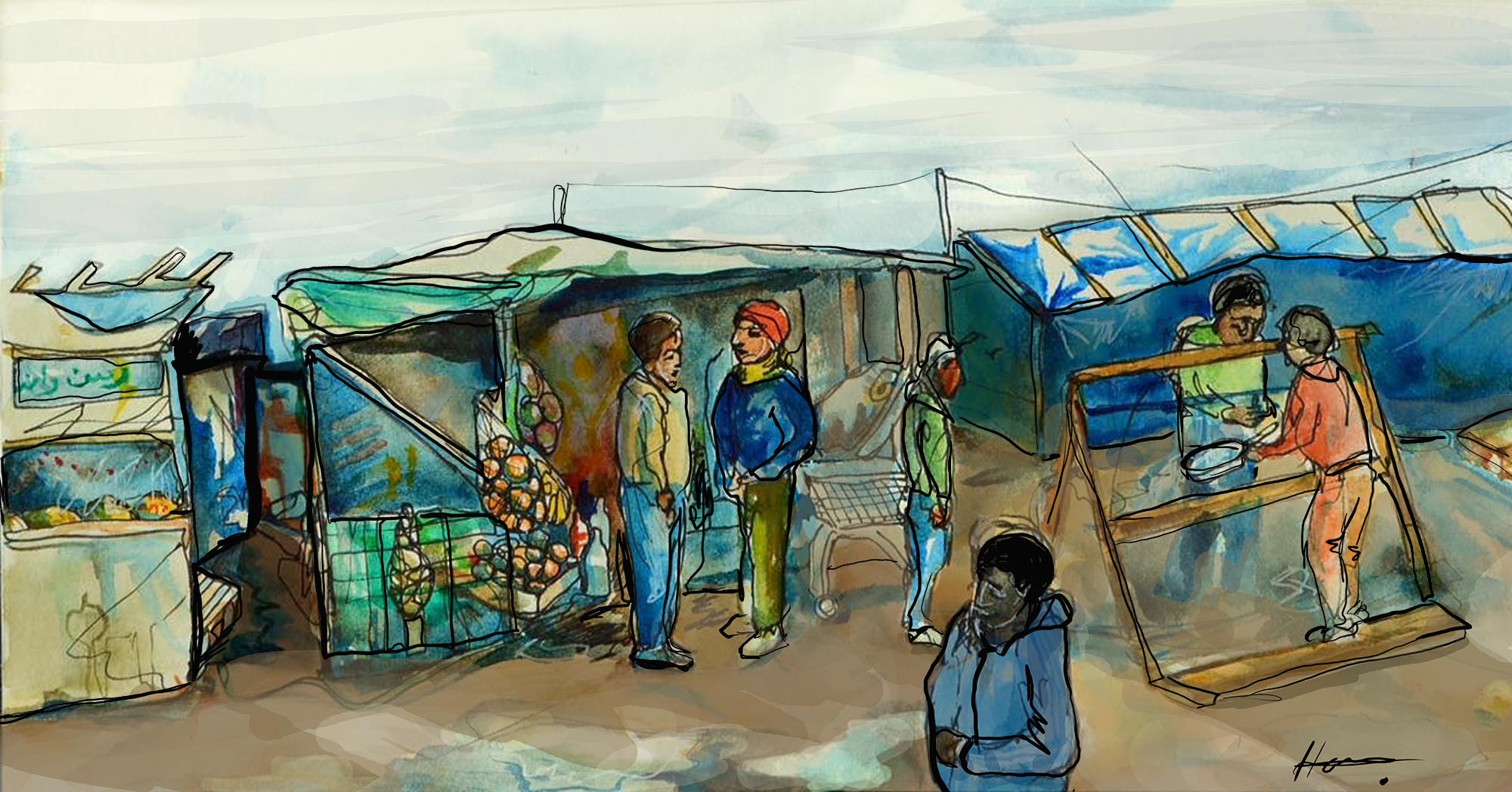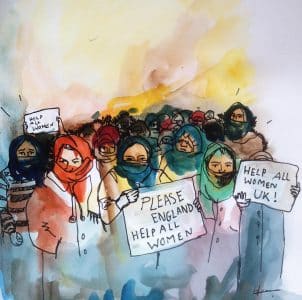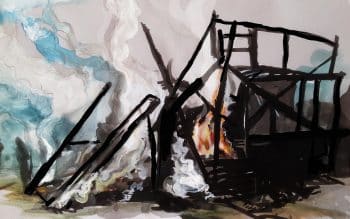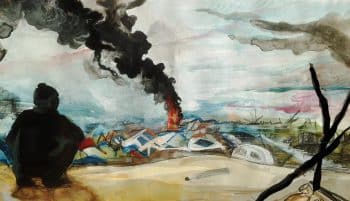=By= Gilbert Doctorow

Rushing to war – justified by half-truths and propaganda – is a story as old as written history and the topic of great novelists like Leo Tolstoy, whose Anna Karenina offers lessons for today’s stampede toward WWIII, says Gilbert Doctorow.
Russian literature is too important to be left to professors of Comp Lit or to Slavic Departments at our universities, as is so often the case with the novel that I propose to examine here, Leo Tolstoy’s, Anna Karenina. Great literature is great precisely because of its multi-layered construction and the timelessness of the issues and considerations that constitute its substance.
Like War and Peace, Karenina has been the subject of many films going back to 1911, running through the 1930s with two classic versions featuring the legendary Greta Garbo and right up to time present and the widely discussed version released in 2012.

Russian novelist Leo Tolstoy.
The novel has a core triangle, the relations between the heroine, her unloved and unloving husband who is 20 years her senior, Alexei Alexandrovich Karenin, and her lover, Prince Alexei Vronsky, for whom she gives up everything but does not find happiness or inner peace, seeing instead that her only way out is suicide. It is about love and passion, about the basic building block of all societies, the family.
This side of Anna Karenina has been especially highlighted in the film versions, being universally appealing and not tedious in the least. Indeed, the first (silent) Garbo film was entitled Love. The novel’s basic narrative is also about the relations between the sexes. The issues surrounding feminism, aired at length throughout the development of the core plot, speak to our present day with perfect clarity notwithstanding the passage of 140 years from the time the words were written.
It is easy to understand the feeling of any film director taking in hand this magnificent novel with its splendid story line and turning literature into cinema. However, what Tolstoy produced may also be described as a piece of documentary film-making as we understand the profession today. The side plots, the relief to the main plot, are not just ballast. They are the result of the author’s going through salons and clubs in Moscow and St. Petersburg, going through the meetings of the nobility among themselves in corpore at their assemblies and individually over tea at their country estates, going through the interchanges between these landlords and their peasants over how to use the new farm machinery they have introduced and how to split up the profits, these and many other topics of the day as if with a team of cameramen and sound operators who record every word.
The whole of Russian society was “tape recorded” by Leo Tolstoy and its thinking on a great variety of subjects was set out in Karenina for our perusal.
Tolstoy’s enthusiasm for his role of public chronicler was such that he ignored the rules of the novel and continued the narration for more than 50 pages beyond the suicide of his heroine. It is to those last pages of the novel that I direct attention today, because the issues and the thinking about those issues recorded by Tolstoy parallel what we see around us today in the United States as we head into what may well be World War III.
Anna Karenina was written over the course of five years, from 1873 to 1877 and during that time the topics which predominated in the salons Tolstoy visited changed from domestic concerns like the effectiveness of the institutions of local self-government and justices of the peace introduced with the Great Reforms of the 1860s, the viability of noble estates as agricultural units in an age of railway construction and industrialization to one topic of international relations and Russia’s standing in the world.
The Slavophile movement was gathering speed and reached its culmination in the final year that Tolstoy wrote his novel, when, in the context of brutal massacres of Bulgarians, Serbs and other peoples in the Balkans seeking to cast off the Ottoman yoke, Russian civilians were volunteering in the hundreds and thousands to join their Slavic brethren for a decisive fight against the Turks.
Enthusiasm for Battle
The enthusiasm for battle in Russian liberal society, what we can the “country party,” was viewed skeptically, like any popular movement outside its control, by the tsarist authorities and their loyal supporters, whom we shall call the “court party.” This distrust on the part of authorities was all the more keen as it infringed on the monarchy’s key role of managing foreign and defense policy.
And, in the end, this distrust was well placed because the popular enthusiasm ultimately engaged the Russian imperial forces in a new war with the Ottoman Empire in 1877-78 which, though victorious on the battlefield, ended in a humiliating setback to Russia’s international standing when mediated by the Great Powers at the Congress of Berlin.
What occurred in 1878 was not a mere historical curiosity, but instead was a “dry run” for the conflict 36 years later which we all know as World War I. In 1914, as well, the “country party” and the “court party” were divided over the inevitability and desirability of the coming war with Austria-Hungary and its ally Prussia.
If I may change labels, it was the Realists (or court party) against the Romantic Nationalists (the country party) who were under the spell of ideology. This question has been examined in magisterial fashion by historian Dominic Lieven in his recent book The End of Tsarist Russia.
In Anna Karenina, the stormy debates between conservative monarchist and progressive noble elites over what should be done in the Balkans are embodied by his characters. The second or third most important personage in the novel, Prince Vronsky, is shown departing for Serbia together with a squadron of soldiers under his protection. His enthusiasm for the South Slav cause is shown to be an accidental consequence of his loss of Anna and of all reason to live.
By the same token, the volunteer soldiers boarding their train to the south for transfer to Serbia are depicted as drunkards, failed gamblers and other marginal persons in what is a clear tip-off of Tolstoy’s own feelings about war in general and this war in particular. But there is no reason to guess, Tolstoy’s views of the forces leading to war are expressed most clearly through the voices of his alter-ego, Konstantin Levin, the forever naïve and self-questioning hero of the novel, a provincial farmer-nobleman, and his father-in-law, Prince Shcherbatsky, the representative of an older generation raised under pre-Reform values.
When history repeats itself, the parties to conflicts do not necessarily occupy the same sides of a given argument. In the 1870s, Russian liberal society was deeply moved by the notion of humanitarian intervention, virtually in the same sense as this has become a fixture of the American political establishment and driver of foreign policy since Bill Clinton’s presidency in the U.S.
The voice for humanitarian intervention in Anna Karenina is Levin’s half brother, Sergei Ivanovich Koznyshev, a Moscow intellectual, for whom the Pan-Slav cause has given him a preoccupation to fill his days and sense of purpose.
Below is the argumentation adduced in favor of the intervention in the Southern Balkans by the “country party” through Sergei Ivanovich. If we put aside the Christian factor, which today is so scorned in our politically correct multiculturalism, you will find points very similar to what is today being adduced by American and European commentators in their expressions of horror over the Syrian-Russian bombing of east Aleppo and their urgent calls for humanitarian action:
“There is no question here of a declaration of war, but simply the expression of human Christian feeling. Our brothers, one with us in religion and in race, are being massacred. Even supposing they were not our brothers nor fellow-Christians, but simply children, women, old people, feeling is aroused and Russians go eagerly to help in stopping these atrocities. Fancy, if you were going along the street and saw drunken men beating a woman or a child – I imagine you would not stop to inquire whether war had been declared on the men, but would throw yourself on them, and protect the victim.”
To which, Sergei Ivanovich adds: “The people have heard of the sufferings of their brethren and have spoken.”
Levin casts the first stone against this blanket assertion: “Perhaps so,” he said evasively, “but I don’t see it. I’m one of the people myself, and I don’t feel it.”
Self-Interest for War
The old prince Shcherbatsky drives home the point: “I’ve been staying abroad and reading the papers, and I must own, up to the time of the Bulgarian atrocities, I couldn’t make out why it was all the Russians were all of a sudden so fond of their Slavonic brethren, while I didn’t feel the slightest affection for them. I was very much upset, thought I was a monster, or that it was the influence of Carlsbad on me. But since I have been here, my mind’s been set at rest. I see that there are people besides me who’re only interested in the yoke of Russia, and not in their Slavonic brethren.”
![U.S. Secretary of State John Kerry, flanked by Assistant Secretary of State for European and Eurasian Affairs Victoria "Toria" Nuland, delivers his opening remarks to Russian Foreign Minister Sergey Lavrov at the outset of a bilateral meeting on July 15, 2016, in Moscow. [State Department photo]](https://consortiumnews.com/wp-content/uploads/2016/07/27703725034_63080748a1_k-300x200.jpg)
U.S. Secretary of State John Kerry, flanked by Assistant Secretary of State for European and Eurasian Affairs Victoria “Toria” Nuland, delivers his opening remarks to Russian Foreign Minister Sergey Lavrov at the outset of a bilateral meeting on July 15, 2016, in Moscow. [State Department photo]
They ask a peasant standing by, Mihalich, about his views on the subject. Of course, Mihalich has no views, deferring to whatever position the tsar may hold, and Levin presses on:
“That word ‘people’ is so vague,” said Levin. “Parish clerks, teachers, and one in a thousand of the peasants, maybe, know what it’s all about. The rest of the eighty millions, like Mihalich, far from expressing their will, haven’t the faintest idea what there is for them to express their will about. What right have we to say that this is the people’s will?”
To this, Sergei Ivanovich responds in a way that lays bare what “public opinion” is all about. In my view, the exchange of opinions have direct relevance to where we, in American society, find ourselves today over the prosecution of our “humanitarian intervention” and “values guided” foreign policy in Syria at a moment when a great hue and cry has gone up over the killing in east Aleppo:
Sergey Ivanovitch: “let us look at society. … All the most diverse sections of the educated public, hostile before, are merged in one. Every division is at an end, all the public organs say the same thing over and over again, all feel the mighty torrent that has overtaken them and is carrying them in one direction.”
“Yes, all the newspapers do say the same thing,” said the prince.
“That’s true. But so it is the same thing that all the frogs croak before a storm. One can hear nothing for them.”
“Frogs or no frogs, I’m not the editor of a paper and I don’t want to defend them, but I am speaking of the unanimity in the intellectual world,” said Sergey Ivanovich, addressing his brother.
“Well, about that unanimity, that’s another thing, one may say,” said the prince, continuing: “So it is with the unanimity of the press. That’s been explained to me: as soon as there’s a war their incomes are doubled. How can they help believing in the destinies of the people and the Slavonic races … and all that?”
In effect, what Tolstoy was describing in these passages is precisely the “group think” of his day, when all of educated society and all the arbiters of public opinion in the print media were whipping up a pro-war fury that no one could publicly resist. So it is now, with the calls of our newspapers of record, of our major media and of the leading candidate for the presidency of the United States demanding a show of force in Syria, under the innocuous terms of imposing a “no-fly zone” and setting up “safe havens for refugees,” to put a halt to the killing in east Aleppo being perpetrated by the Syrian armed forces, in close collaboration with the Russian air force and Iranian fighters on the ground.
These voices of the Western establishment make these calls, willfully ignoring the plainly stated warning of the chief of Russian operations in Syria that the newly installed air defense systems will shoot down any unidentified planes or cruise missiles entering Syrian air space, even at the price of heading us into World War III.
The Western media and politicians today are all croaking like frogs before the storm. And the American public is as ignorant about the background issues to the present crisis in Syria, about the nefarious activities of their own and allied forces in support of the Islamic jihadist rebels controlling east Aleppo, just as Mihalich was ignorant about the issues surrounding the coming Balkan war. This “ostrich effect” is the true nature of modern day isolationism in the United States.
I close this review of the highly relevant exposition of reasoning about drivers of foreign policy in Anna Karenina by quoting Tolstoy’s recommended cure for the war fever of the arbiters of public opinion:
“I would only make one condition,” pursued the old prince. “Alphonse Karr said a capital thing before the war with Prussia. ‘You consider war to be inevitable? Very good. Let everyone who advocates war be enrolled in a special regiment of advance guards, for the front of every storm, of every attack, to lead them all’!”
“’A nice lot the editors would make!’ said Katavasov, with a loud roar, as he pictured the editors he knew in this picked legion.”
To update this proposal, I believe that our special forces operating illegally on the ground in Aleppo for the coordination and technical support of the jihadist rebels and “moderate opposition” to President Assad will very willingly trade places with an incoming special regiment of storm troopers drawn from the likes of Robert Kagan, William Kristol and Victoria Nuland, the irresponsible loudmouths who claim to speak for the American people and who are in fact leading us to collective suicide.
 Gilbert Doctorow is the European Coordinator of The American Committee for East West Accord. His most recent book, Does Russia Have a Future? was published in August 2015. © Gilbert Doctorow, 2016
Gilbert Doctorow is the European Coordinator of The American Committee for East West Accord. His most recent book, Does Russia Have a Future? was published in August 2015. © Gilbert Doctorow, 2016
Note to Commenters
Due to severe hacking attacks in the recent past that brought our site down for up to 11 days with considerable loss of circulation, we exercise extreme caution in the comments we publish, as the comment box has been one of the main arteries to inject malicious code. Because of that comments may not appear immediately, but rest assured that if you are a legitimate commenter your opinion will be published within 24 hours. If your comment fails to appear, and you wish to reach us directly, send us a mail at: editor@greanvillepost.com
We apologize for this inconvenience.

 Nauseated by the
Nauseated by the
vile corporate media?
Had enough of their lies, escapism,
omissions and relentless manipulation?
GET EVEN.
Send a donation to
The Greanville Post–or
SHARE OUR ARTICLES WIDELY!
But be sure to support YOUR media.
If you don’t, who will?
ALL CAPTIONS AND PULL-QUOTES BY THE EDITORS, NOT THE AUTHORS.

 GAITHER STEWART Senior Editor, European Correspondent } Gaither Stewart serves as The Greanville Post European correspondent, Special Editor for Eastern European developments, and general literary and cultural affairs correspondent. A retired journalist, his latest book is the essay asnthology BABYLON FALLING (Punto Press, 2017). He’s also the author of several other books, including the celebrated Europe Trilogy (The Trojan Spy, Lily Pad Roll and Time of Exile), all of which have also been published by Punto Press. These are thrillers that have been compared to the best of John le Carré, focusing on the work of Western intelligence services, the stealthy strategy of tension, and the gradual encirclement of Russia, a topic of compelling relevance in our time. He makes his home in Rome, with wife Milena. Gaither can be contacted at gaithers@greanvillepost.com. His latest assignment is as Counseling Editor with the Russia Desk. His articles on TGP can be found here.
GAITHER STEWART Senior Editor, European Correspondent } Gaither Stewart serves as The Greanville Post European correspondent, Special Editor for Eastern European developments, and general literary and cultural affairs correspondent. A retired journalist, his latest book is the essay asnthology BABYLON FALLING (Punto Press, 2017). He’s also the author of several other books, including the celebrated Europe Trilogy (The Trojan Spy, Lily Pad Roll and Time of Exile), all of which have also been published by Punto Press. These are thrillers that have been compared to the best of John le Carré, focusing on the work of Western intelligence services, the stealthy strategy of tension, and the gradual encirclement of Russia, a topic of compelling relevance in our time. He makes his home in Rome, with wife Milena. Gaither can be contacted at gaithers@greanvillepost.com. His latest assignment is as Counseling Editor with the Russia Desk. His articles on TGP can be found here.

 In his zeal to prove to his antagonists in the War Party that he is as bloodthirsty as their champion, Hillary Clinton, and more manly than Barack Obama, Trump seems to have gone “play-crazy” -- acting like an unpredictable maniac in order to terrorize the Russians into forcing some kind of dramatic concessions from their Syrian allies, or risk Armageddon.However, the “play-crazy” gambit can only work when the leader is, in real life, a disciplined and intelligent actor, who knows precisely what actual boundaries must not be crossed. That ain’t Donald Trump -- a pitifully shallow and ill-disciplined man, emotionally handicapped by obscene privilege and cognitively crippled by white American chauvinism. By pushing Trump into a corner and demanding that he display his most bellicose self, or be ceaselessly mocked as a “puppet” and minion of Russia, a lesser power, the War Party and its media and clandestine services have created a perfect storm of mayhem that may consume us all.— Glen Ford, Editor in Chief, Black Agenda Report
In his zeal to prove to his antagonists in the War Party that he is as bloodthirsty as their champion, Hillary Clinton, and more manly than Barack Obama, Trump seems to have gone “play-crazy” -- acting like an unpredictable maniac in order to terrorize the Russians into forcing some kind of dramatic concessions from their Syrian allies, or risk Armageddon.However, the “play-crazy” gambit can only work when the leader is, in real life, a disciplined and intelligent actor, who knows precisely what actual boundaries must not be crossed. That ain’t Donald Trump -- a pitifully shallow and ill-disciplined man, emotionally handicapped by obscene privilege and cognitively crippled by white American chauvinism. By pushing Trump into a corner and demanding that he display his most bellicose self, or be ceaselessly mocked as a “puppet” and minion of Russia, a lesser power, the War Party and its media and clandestine services have created a perfect storm of mayhem that may consume us all.— Glen Ford, Editor in Chief, Black Agenda Report 












![U.S. Secretary of State John Kerry, flanked by Assistant Secretary of State for European and Eurasian Affairs Victoria "Toria" Nuland, delivers his opening remarks to Russian Foreign Minister Sergey Lavrov at the outset of a bilateral meeting on July 15, 2016, in Moscow. [State Department photo]](https://consortiumnews.com/wp-content/uploads/2016/07/27703725034_63080748a1_k-300x200.jpg)